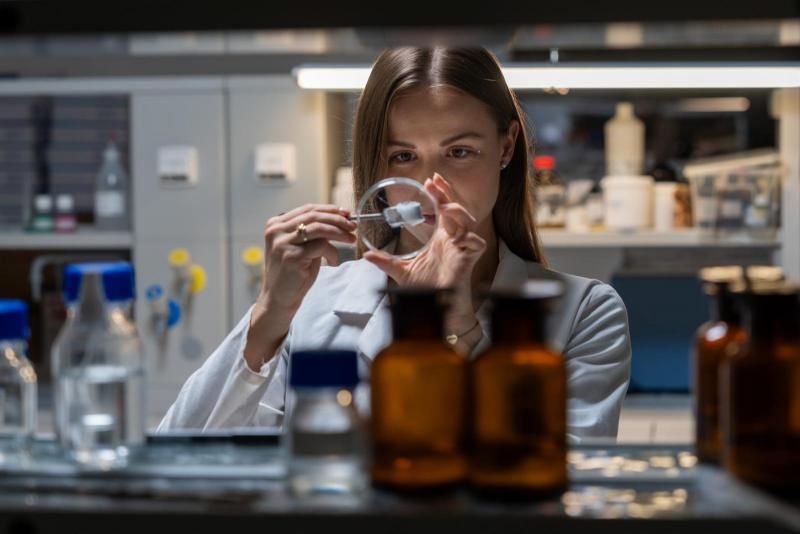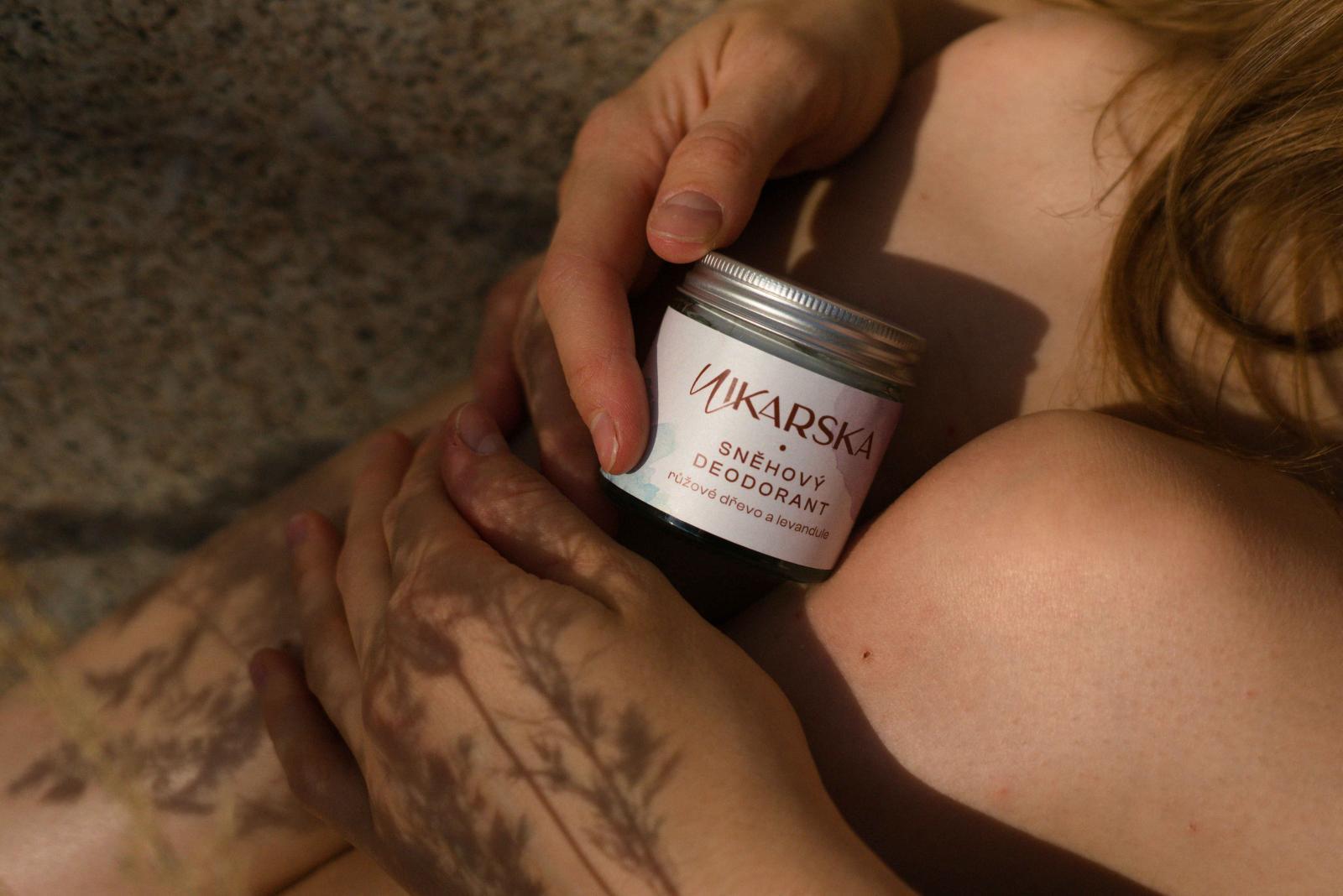Ideas and discoveries
In high school, she devoted herself to making cosmetics. She has now come second in the business competition and she is preparing new products

I live in the present. Competition taught me to plan, says young scientist
When Monika Wikarská was deciding which path to take at the end of high school, she chose chemistry because of her interest in cosmetics. After her engineering studies, she applied for a doctoral study and thought she would pursue a career as a scientist. “I told myself that I didn't want to be an entrepreneur because I enjoy science more,” she explains. Even during her studies, however, she did not stop making cosmetics. “People around me were using it, coming back to it, so I found it was something that I think the market wanted. I set up a business and started selling Snow deodorant which is my most wanted product,” says Wikarská. And when she saw the Come Do Business competition, she thought she might give it a try. “The competition made me realise where I am and where I want to go. It's the part about the plans that is very mystical to me. I live enough in the present and what's happening now. I don't think about how big my business should be one day, how many employees I want to have, how many cosmetics I want to produce and sell,” she says, adding: “But this competition has shown me how important it is for me to grasp some of that, to anchor it and to be clear about where I'm going.”

She says the forms she had to fill out in the first and third rounds helped her the most. “I basically had to put together a business plan. Filling it out helped me a lot to organize my thoughts. When you do it just for yourself, you often think that you don't really need it. But here I wanted it to be done well, so I really had to sit down,” says Monika Wikarská. She said she also very much welcomed questions from the commission. “There were people from the business who asked me difficult questions. They opened up the discussion and made me think,” she explains. But she sees the biggest benefit of her participation in the support she has received. “They gave me courage. I was thinking in small numbers until then. A person who doesn't know much about business doesn't trust oneself. Many times they changed the amounts in crowns into euros,” laughs Monika Wikarská, adding that she stopped being afraid of the business after the competition. “I feel now that I have a whole community behind me.”
Right now, main focus of Monika Wikarská is on ensuring stable production with the quality she demands. “Manufacturing is still a burning issue. I am now communicating with several companies that could produce cosmetics,” she confirms, adding that it was only through this that she realised that the composition of the products is quite complex. “It never occurred to me when I made them myself,” she adds with a smile. She would like to launch four new products as soon as production can be secured. “It will be skincare products. Over the years I have tried hundreds of formulations and these four stood out for their functionality,” she explains why she chose them.

(zeh)
Stevan Gavranović studies environmentally friendly lead-free halide perovskites
ARGO underwater: Prototype of student submarine on display at IDET Fair
Bone tissue carriers from 3D printer make bone regeneration more effective. Their formulations are being tested at FCH BUT
Challenge as a lifestyle: strojLAB connects students and fields of study across BUT
They were looking for a way how to supress the negative effect of zinc on cement. They developed a material with even better properties